Regime violates criminal code by releasing femicides and sexual rapists
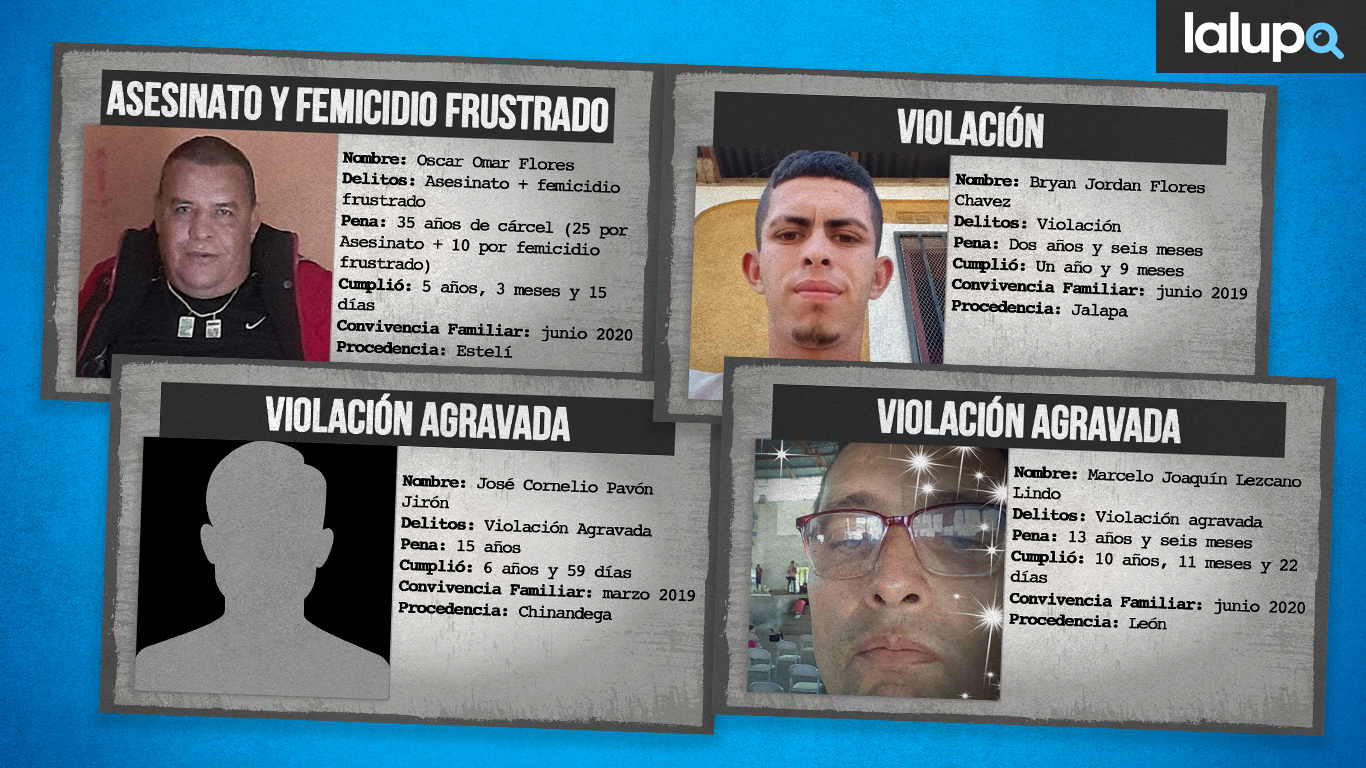
January 2050 is the date on which the convicted Oscar Omar Flores Herrera, of 46 years, would be released for the crimes of murder and attempted of femicide. However, as a result of a policy that women’s organizations describe as “populist and whimsical” of the regime of Daniel Ortega and Rosario Murillo, he was released from prison 24 years and 8 months in advance when he was granted the Ordinary Family Coexistence benefit.
La Lupa confirmed, with a hand sentence and release order, three cases of inmates benefited, between 2019 and 2020, with the Ordinary Family Coexistence regime, such as the case of Flores Herrera who only served five years, three months and five days of a sentence of 35 years in prison, 25 for homicide and 10 for frustrated femicide- as well as two other common inmates who were perpetrators of the crime of aggravated rape against teenagers.
As of September 2020, the regime of Daniel Ortega and Rosario Murillo had released an average of 20,000 inmates, benefiting from the Ordinary Family Cohabitation regime under Law 745 – Law on the enforcement, Benefits and Judicial Control of criminal sanction – among which, feminist organizations have denounced, there are some 514 rapists and femicides.
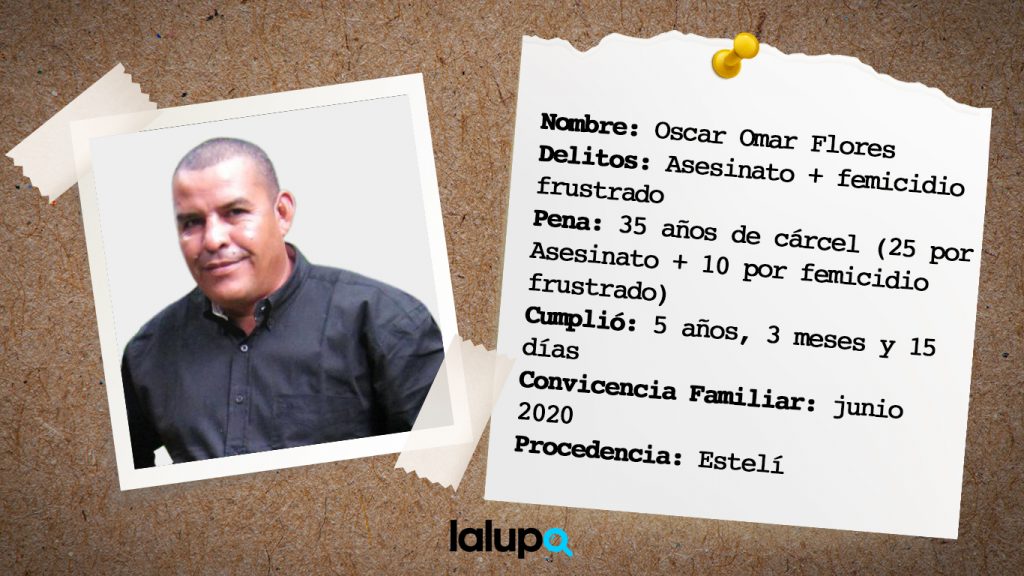
Oscar Omar Flores Herrera, looks renovated. On his Facebook page he is happy, blushing, in good health, strolling about Estelí — where his ex-partner lives, as a survivor of frustrated femicide — shopping, in family gatherings and with the Bible in hand, but also kneeling ‘preaching the word of God.’
At first glance it seems that «he is reintegrated into society», as argued by Darling Morales, director of the Puertas de Esperanza prison in Estelí in the face of the Inter-institutional Commission made up of the Supreme Court of Justice (SCJ), Public Ministry (PM), National Police and Penitentiary Systems, where he promoted the Ordinary Family Coexistence regime, a procedure that was completed by the judge, Mercedes Elisa Jirón of the Criminal District Court for the Execution of Sentence and Penitentiary Surveillance of Estelí, which in judgment number 0141-2020, confirmed, on May 13, 2020, the freedom of Flores Herrera. Although it was until July, along with 163 other common criminals, that he celebrated it in an act in «compliance with the will of the commander» and the «promotion of family unity,» as expressed by the director of the prison and the mayor of Estelí, Francisco Valenzuela who presided over the event.
In 2020 in Estelí, 772 inmates were released under this benefit contemplated in Law 745, through a list promoted and presented by the prison director, but in some cases its applicability is in violation, both the law itself and the Nicaraguan Penal Code, as well as Flores Herrera, who did not meet the requirements.
Article 16(b) of Law 745 on the Discount of the Deprivation of Liberty – states that «parole may be granted in serious and less serious crimes, when the convicted person has served two-thirds of the effective prison».
Flores Herrera had only served 17.61 percent of the sentence, equivalent to five years, three months and five days, a figure that contravenes Article 96 of Nicaragua’s Penal Code, that establishes the same period to grant this benefit. Herrera, with a sentence of 35 years, would only serve 30 years as established by the Political Constitution as the maximum penalty, until January 18, 2021, when the regime approved life imprisonment.
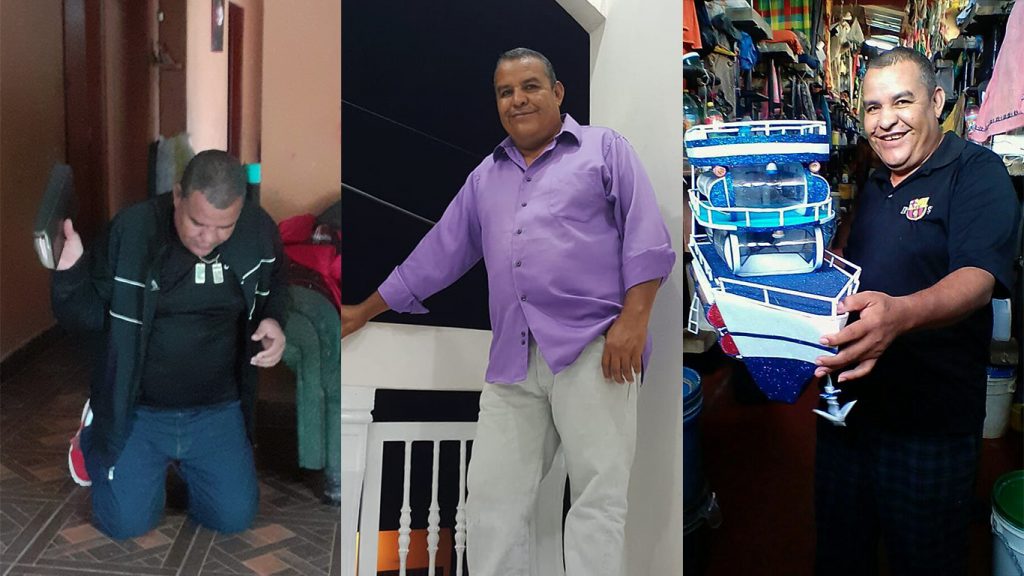
In sentencing, the court ordered Flores Herrera to comply, during the remaining period of his sentence, with measures such as: making personal bail of a family member; presenting himself to the court once a month; abstaining from going to bars or casinos and adopting a trade, but no measures were ordered to protect the survivor of frustrated femicide.
«She (the victim) should be protected because the intentions of this man are unknown when he is released. We do not know if this frustrated femicide can become a femicide (consummate) and then (that man) kills himself, as many are killing themselves after committing the crime, «questions Rosario Flores, a litigant lawyer expert in women’s rights, who in turn regrets that «the State that Is supposed to be the guarantor of the victims of violence is the one that condemns and then releases the aggressor».
By the nature of the crimes – murder and femicide in frustration – and in compliance with Law 779 – Comprehensive Law against Violence against Women, the judicial authority had to define measures for the protection of the victim in compliance with the principle of reparation established in article 4 of the Act.
Juana Ester Sánchez Salinas, survivor of femicide and legal representative of her daughter, Leydi Sánchez Salinas (RIP) murdered by Flores Herrera, appealed to the Criminal Chamber of the Court of Appeals of Estelí to modify the sentence, so the court ordered a ban on communicating, approaching both the survivor and her family, the property where she lives and the one where the events took place in 2015.
«The State of Nicaragua is committing a crime by becoming an accomplice to femicides and rapists, because knowing that it has a conviction, it releases them and does not have a plan to accompany, cushion and support these policies. What they want is to promote a discourse of impunity, to seek a discourse before society, and to men in particular, who are ready to continue committing acts of violence, «says Mirna Blandon of the Nicaraguan Feminist Movement (NFM).
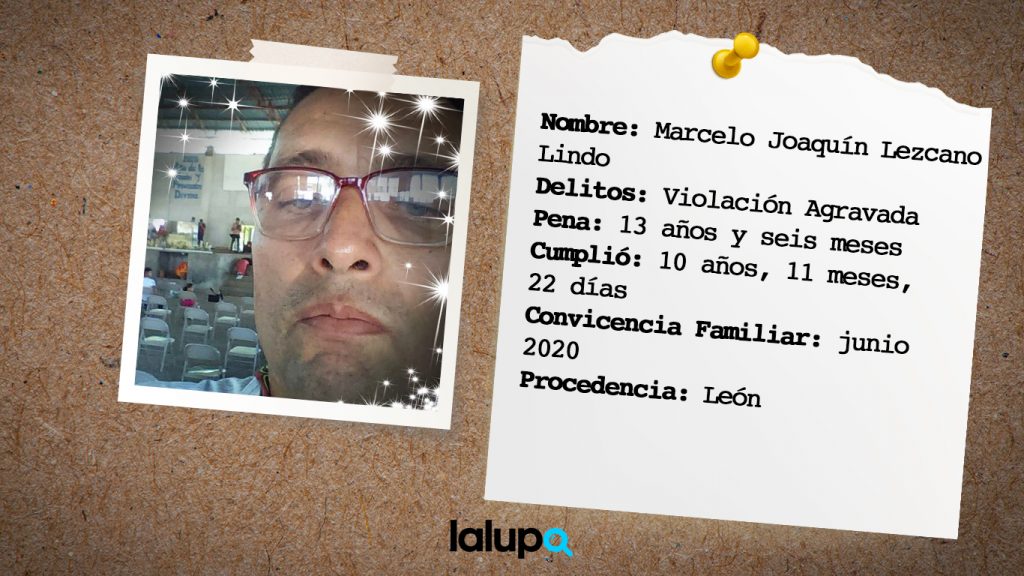
Blandon dares to calculate that the figure is more than 514 femicides and freed rapists, because he assures that in the communities they are «open secrets» that no one dares to reveal in the face of fear. This investigation attempted to obtain testimonies from the family of the victims, as well as from organizations that provided accompaniment to the women during the judicial proceedings but remained silent for fear of reprisals.
Six years and 59 days served José Cornelio Pavon Jiron of a 15-year sentence, imposed in July 2014, for the crime of aggravated rape against a 15-year-old teenage girl. Like Flores Herrera, he was benefited on March 14, 2019, with the Ordinary Family Cohabitation regime at the request of the directorate of the National Penitentiary System that presented to the Interinstitutional Commission a list of proposals for prisoners to benefit in Chinandega.
A routine procedure that seems to follow to the letter a script in which only the names of the characters are changed, since the argument also does not vary in the sentence of release of Marcelo Joaquín Lezcano Lindo, sentenced to 13 years and six months for the crime of aggravated rape against an adolescent whose case was settled in León, who only served 10 years, 11 months and 22 days.
Both judgments are based on the recognition of the «re-educational treatment of the convicted person»; «A criminal overcrowding, keeping latent the risk that the sentence imposed, turns into cruel and inhuman treatment»; as well as respect for the Political Constitution and the humanitarian nature of the Penitentiary System, which has been pointed out, along with the entire justice system, of violating the laws, the judicial process and the human rights of political prisoners, but also it is part of a regime denounced for committing crimes against humanity.
But, although these judgments are based on respect for the law, they do not comply with article 16 of Law 745 and 181 of Law 641 regarding that: “when the sexual crime is committed against boys, girls and adolescents there will be no benefit” in the suspension of the sentence.
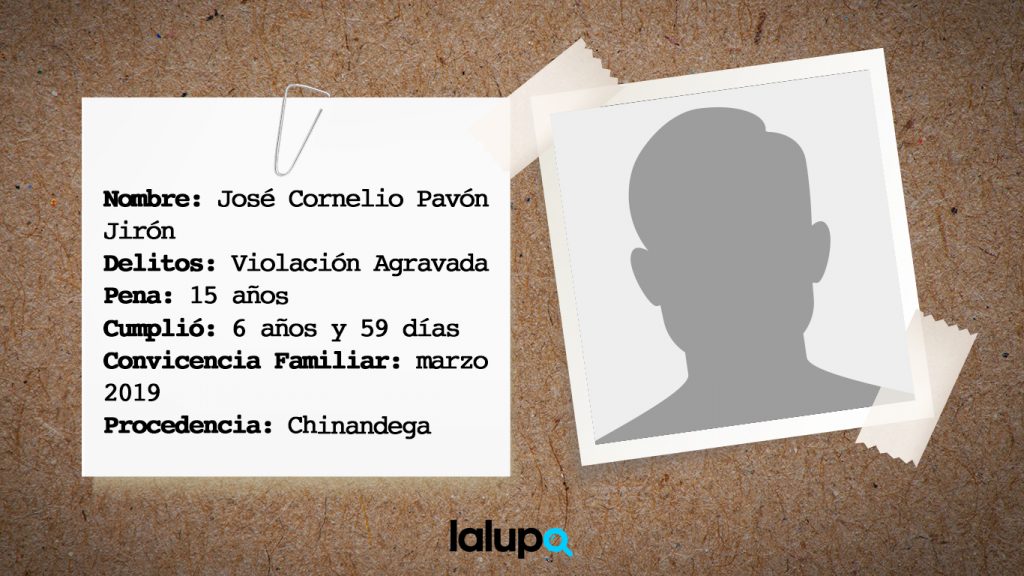
“It is yet another condition of violation of the rights of women who have been victims of these people’s crimes, but it is also a permit that gives them impunity to continue committing more crimes. We are talking about something very perverse on the part of the Government when it orders to remove common criminals without having served their sentence and there is another element in this regard, because in sexual crimes the fact of lowering the penalties for good behavior or anything does not apply for the style, but it should comply fully «, indicates the psychologist and member of the Movement Against Sexual Abuse, Lorna Norori.
The Nicaraguan Feminist Movement has pointed out to the regime of Daniel Ortega and Rosario Murillo of » despise the lives of women «, as well as to be «accomplices of sexists, aggressors, rapists and femicides» in the face of an «unwillingness to curb violence against women» beyond offering “pardons” and presidential pardons that “promote impunity”, and that condemns the victims to live in fear.
In 2012, Law 779 was approved in Nicaragua – Comprehensive Law of Violence against Women, which in less than a year underwent two reforms: the first in October 2013, when mediation between victims and aggressors was allowed for “less serious crimes”. And the last one in 2014, when it was regulated by Decree 42-2014, in which the crime of femicide was limited to couple relations.
While in 2015, the same year that Flores Herrera murdered his stepdaughter and tried to kill his partner, in the name of “the family unit”, they began to close the main door to the access route to justice for women: The Women, Childhood and Adolescence Commissariats. And although its reopening has been announced, feminists claim it is only part of a «populist speech» by the regime’s spokesman, Rosario Murillo.
“Violence as a structural problem corresponds to a structural response, not only to pardon or give the benefit of freedom to a rapist, a stalker and a femicide, but there are structural problems in which all institutions, sectors and society itself have the right to responsibility to give the answer to a serious problem such as violence against women”, claims Blandón.
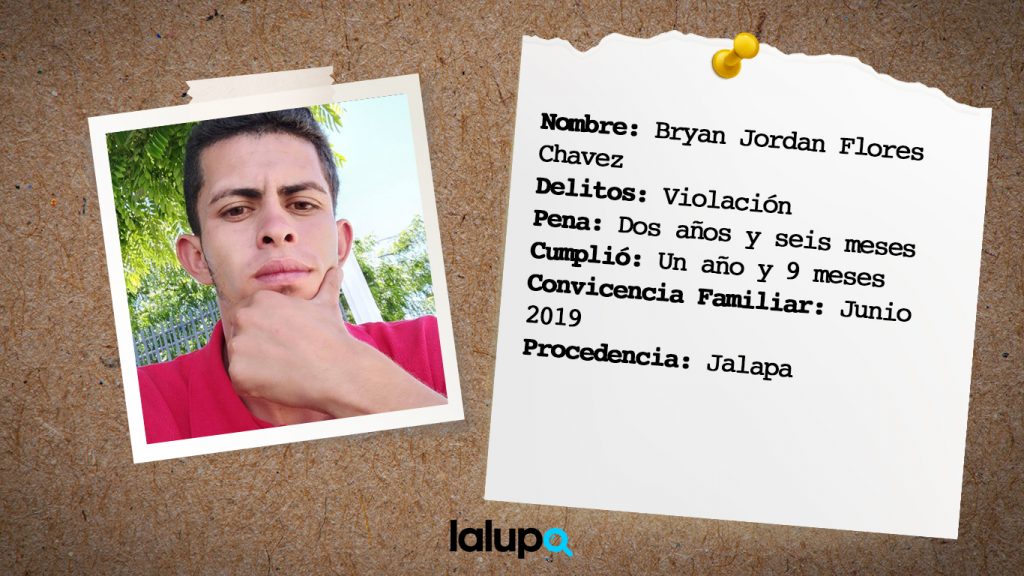
The sentence handed down to teenager Bryan Jordan Flores Chávez for the crime of rape, ordered that it be divided into two points: one year he would be imprisoned in the Estelí Penitentiary System, and the remaining year and six months, he would be rehabilitated in the Nicaraguan Solidarity Center (CECNISOL), however, before the transfer arrived, the order of freedom for Ordinary Family Coexistence arrived.
Today, again, he is confined in the prison while facing a process in which he is accused of the crime of attempted rape and aggravated murder against Katring Ninell López Martínez. A year and six months earlier, he had received his Certificate of Extinction of Sentence, accompanied by a final report, which highlights the psychological care he allegedly received, as well as his good behavior, his interest in studies and his distance from alcohol and drugs.
«The Prison System is not re-educational, so the aggressor gets out of jail with the same or worse intentions toward women. There are no public policies for re-education and attention. Clear example is the case of Jalapa, at almost (turn) 18 years old, he raped his fellow schoolmate, another teenager, 3 years later raping again and murders another friend. Clear example that there is no follow-up to these misoginal behaviors,» Flores says.
He adds that if Law 779 had not been reformed, the case of Katring Ninell López Martínez, would be typified as a femicide rather than a murder and would not be dead to take full care of violence against women, but instead we have a «radiography of a Judicial System that protects perpetrators and forgets justice for victims».
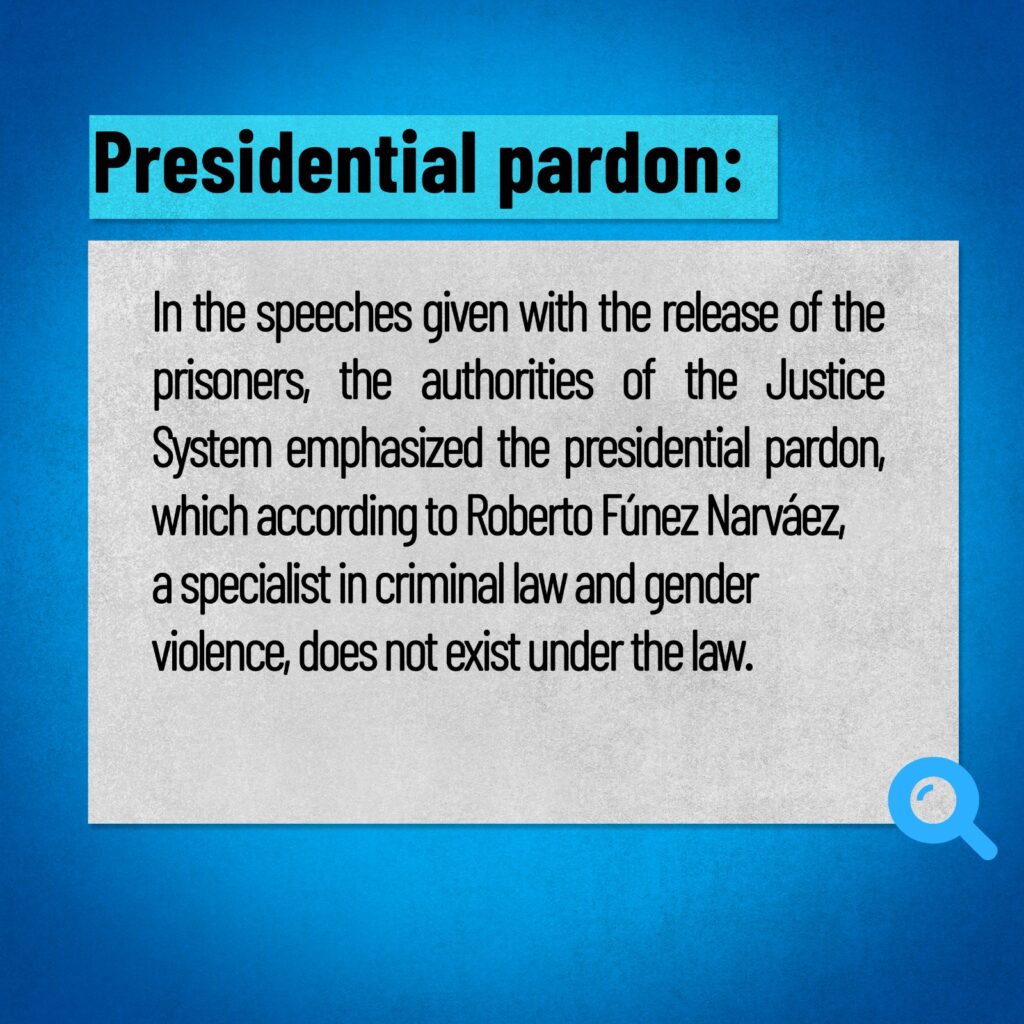
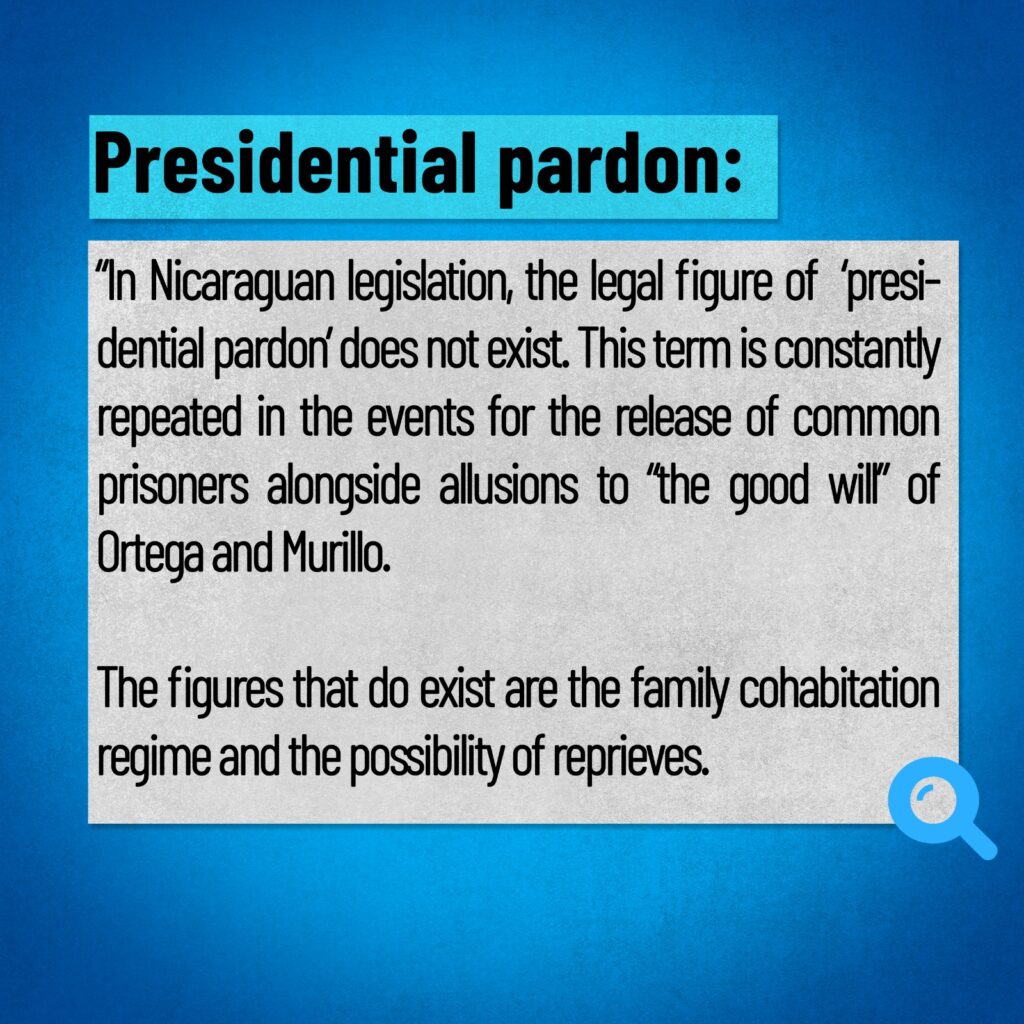
*Some victim data has been reserved as respect for their integrity.
* This research was carried out with a team of collaborators.
Periodista Feminista
Fundadora y directora de www.lalupa.press
Fundadora y presidenta del Movimiento de Mujeres Migrantes (España)
Fundadora y activista en @elblogdetumadre
